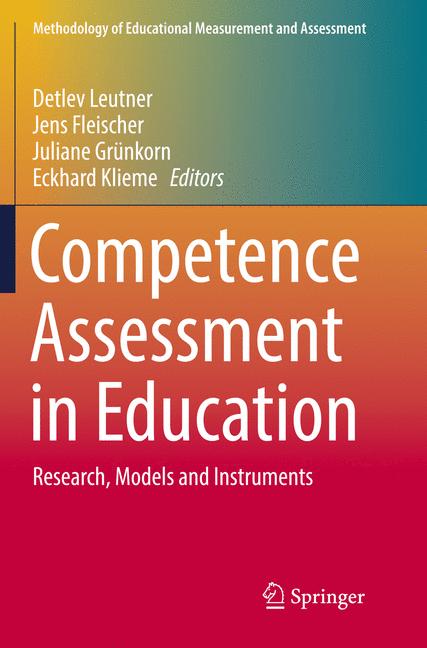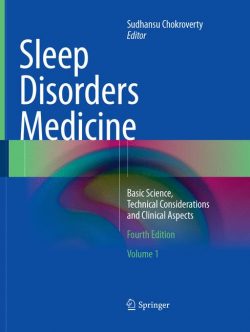This book addresses challenges in the theoretically and empirically adequate assessment of competencies in educational settings. It presents the scientific projects of the priority program “Competence Models for Assessing Individual Learning Outcomes and Evaluating Educational Processes,” which focused on competence assessment across disciplines in Germany.
The six-year program coordinated 30 research projects involving experts from the fields of psychology, educational science, and subject-specific didactics. The main reference point for all projects is the concept of “competencies,” which are defined as “context-specific cognitive dispositions that are acquired and needed to successfully cope with certain situations or tasks in specific domains” (Koeppen et al., 2008, p. 62). The projects investigate different aspects of competence assessment: The primary focus lies on the development of cognitive models of competencies, complemented by the construction of psychometric models based on these theoretical models. In turn, the psychometric models constitute the basis for the construction of instruments for effectively measuring competencies.
The assessment of competencies plays a key role in optimizing educational processes and improving the effectiveness of educational systems. This book contributes to this challenging endeavor by meeting the need for more integrative, interdisciplinary research on the structure, levels, and development of competencies.
1. Competence assessment in education: An introduction; Detlev Leutner, Jens Fleischer, Juliane Grünkorn and Eckhard Klieme.- PART 1: Modeling and assessing student competencies.- 2. Science-P I: Modeling conceptual understanding in primary school; Judith Pollmeier, Steffen Tröbst, Ilonca Hardy, Kornelia Möller, Thilo Kleickmann, Astrid Jurecka and Knut Schwippert.- 3. Science-P II: Modeling scientific reasoning in primary school; Susanne Koerber, Beate Sodian, Christopher Osterhaus, Daniela Mayer, Nicola Kropf and Knut Schwippert.- 4. The Heidelberg inventory of geographic system competency model; Kathrin Viehrig, Alexander Siegmund, Joachim Funke, Sasche Wüstenberg and Samuel Greiff.- 5. An extended model of literary literacy; Christel Meier, Thorsten Roick, Sofie Henschel, Jörn Brüggemann, Volker Frederking, Adelheid Rieder, Volker Gerner and Petra Stanat.- 6. Self-regulated learning with expository texts as a competence: Competence structure and competence training; Joachim Wirth, Melanie Schütte, Jessica Wixfort and Detlev Leutner.-
PART 2: Modeling and assessing teacher competencies.- 7. Investigating pre-service teachers’ professional vision within university-based teacher education; Tina Seidel, Kathleen Stürmer, Manfred Prenzel, Gloria Jahn and Stefanie Schäfer.- 8. Teacher knowledge experiment: Conditions for the development of pedagogical content knowledge; Thilo Kleickmann, Steffen Tröbst, Aiso Heinze, Andrea Anschütz, Roland Rink and Mareike Kunter.- 9. Teachers’ school tracking decisions; Ines Böhmer, Cornelia Gräsel, Sabine Krolak- Schwerdt, Thomas Hörstermann and Sabine Glock.- 10. Modeling, measuring, and training teachers´ counseling and diagnostic competences; Mara Gerich, Monika Trittel, Simone Bruder, Julia Klug, Silke Hertel, Regina Bruder and Bernhard Schmit.- 11. Development and evaluation of a competency model for teaching integrative processing of texts and pictures (BiTe); Annika Ohle, Nele McElvany, Britta Oerke, Wolfgang Schnotz, Inga Wagner, Holger Horz, Mark Ullrich and Jürgen Baumert.- PART 3: Modeling and assessing vocational competencies and adult learning.- 12. Multidimensional competency assessments and structures in VET; Tobias Gschwendtner, Stephan Abele, Thomas Schmidt and Reinhold Nickolaus.- 13. Professional competencies of building trade apprentices after their first year of training; Kerstin Norwig, Cordula Petsch and Reinhold Nickolaus.- 14. Assessing tomorrow’s potential: A competence measuring approach in vocational education and training; Viola Katharina Klotz and Esther Winther.- PART 6: Competency development: Modeling of change and training of competencies.- 15. The development of students’ physics competence in middle school; Susanne Weßnigk, Knut Neumann, Tobias Viering, David Hadinek and Hans E. Fischer.- 16. Modelling and fostering decision-making competence regarding challenging issues of sustainable development; Susanne Bögeholz, Sabina Eggert, Carolin Ziese and Marcus Hasselhorn.- 17. Metacognitive knowledge in secondary school students: Assessment, structure, and developmental change; Wolfgang Schneider, Klaus Lingel, Cordula Artelt and Nora Neuenhaus.- 18. Development of dynamic usage of strategies for integrating text and picture information in secondary schools; Wolfgang Schnotz, Inga Wagner, Fang Zhao, Mark Ullrich, Holger Horz, Nele McElvany, Annika Ohle & Jürgen Baumert.- 19. Training of components of problem-solving competence: An experimental study on aspects of the cognitive potential exploitation hypothesis; Florian Buchwald, Jens Fleischer, Stefan Rumann, Joachim Wirth and Detlev Leutner.- 20. An intensive longitudinal study on the development of student achievement over two years (LUISE); Gizem Hülür, Fidan Gasimova, Alexander Robitzsch and Oliver Wilhelm.- PART 5: Innovations in psychometric models and computer-based assessment.- 21. Multidimensional structures of competencies: Focusing on text comprehension in English as a foreign language; Johannes Hartig and Claudia Harsch.- 22. Multidimensional adaptive measurement of competences; Andreas Frey, Ulf Kroehne, Nicki-Nils Seitz and Sebastian Born.- 23. Development, validation and application of a competence model for mathematical problem solving by using and translating representations of functions; Timo Leuders, Regina Bruder, Ulf Kroehne, Dominik Naccarella, Renate Nitsch, Jan Henning-Kahmann, Augustin Kelava and Markus Wirtz.- 24. Relating product data to process data from computer-based competence assessment; Frank Goldhammer, Johannes Naumann, Heiko Rölke, Anette Stelter and Krisztina Tóth.- 25.< Dynamic problem solving: Multiple-item testing based on minimal complex systems; Joachim Funke and Samuel Greiff.- PART 6: Feedback from competency assessment: Concepts, conditions and consequences.- 26. Formative assessment in mathematics instruction: Theoretical considerations and empirical results of the Co2CA project; Katrin Rakoczy, Eckhard Klieme, Dominik Leiß and Werner Blum.- 27. Arguing validity in educational assessment; Simon P. Tiffin-Richards and Hans Anand Pant.- 28. Evaluating prerequisites for the development of a dynamic test of reading competence: Feedback effects on reading comprehension in children; Tobias Dörfler, Stefanie Golke and Cordula Artelt.
This book addresses challenges in the theoretically and empirically adequate assessment of competencies in educational settings. It presents the scientific projects of the priority program “Competence Models for Assessing Individual Learning Outcomes and Evaluating Educational Processes,” which focused on competence assessment across disciplines in Germany.
The six-year program coordinated 30 research projects involving experts from the fields of psychology, educational science, and subject-specific didactics. The main reference point for all projects is the concept of “competencies,” which are defined as “context-specific cognitive dispositions that are acquired and needed to successfully cope with certain situations or tasks in specific domains” (Koeppen et al., 2008, p. 62). The projects investigate different aspects of competence assessment: The primary focus lies on the development of cognitive models of competencies, complemented by the construction of psychometric models based on these theoretical models. In turn, the psychometric models constitute the basis for the construction of instruments for effectively measuring competencies.
The assessment of competencies plays a key role in optimizing educational processes and improving the effectiveness of educational systems. This book contributes to this challenging endeavor by meeting the need for more integrative, interdisciplinary research on the structure, levels, and development of competencies.
Provides a comprehensive compilation of research results from numerous projects on the assessment of competencies in different domains
Meets the demand for more integrative, interdisciplinary research on the structure, levels, and development of competencies
Presents highly compatible research that is cross-linked with universities and research institutions throughout Germany and abroad




